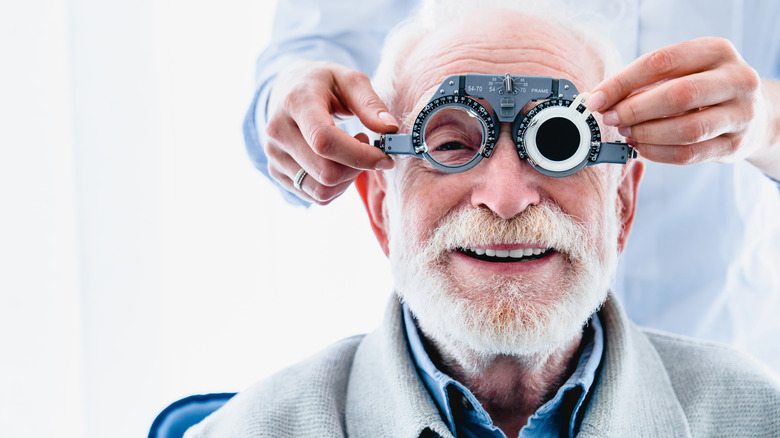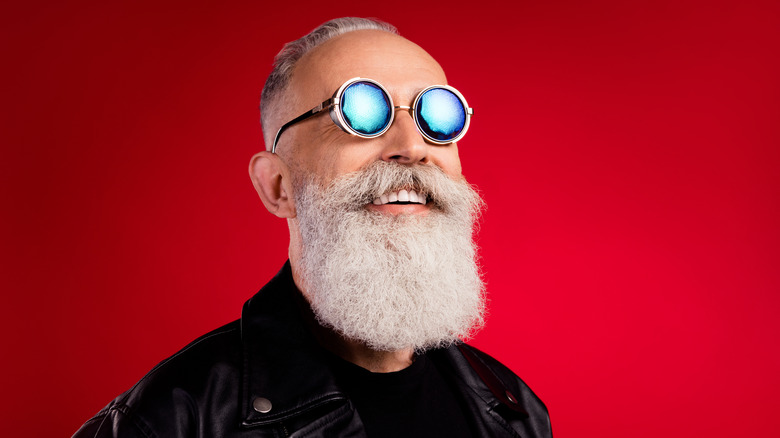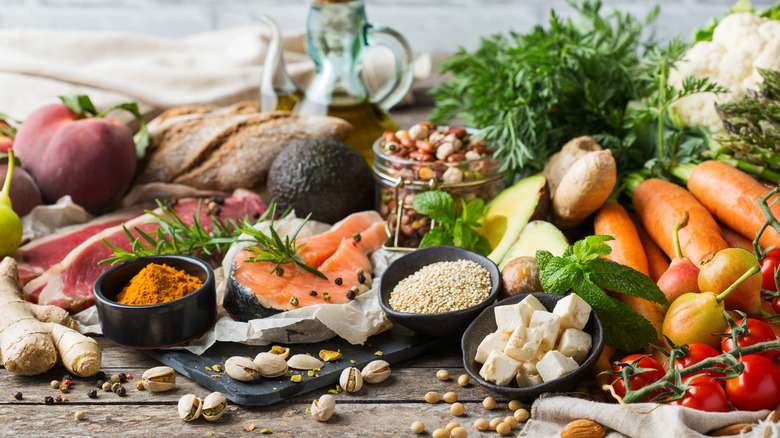How To Protect Your Vision As You Age
Eye problems are known to occur with age, making even simple tasks seem a lot harder. Various causes of eye-related problems exist, including presbyopia. With this condition, letters can appear blurred, even at close distances, which is often caused by the stiffening of the lens (per Mayo Clinic). It becomes less flexible, and the fine muscles in the eye can no longer compress sufficiently to focus on close images.
With age, the internal pressure in the eyes also increases, which puts a strain on the optic nerve, according to WebMD. This condition, called ocular hypertension, is a common cause of glaucoma. It can also create blind spots in the field of vision.
Age-related macular degeneration (AMD) is another age-related cause of vision loss (via WebMD). In this condition, there's a dry form where deposits occur under the part of the retina where we normally see the sharpest (macula). There's also the wet form where blood vessels grow under the macula, leaking blood and fluid into the retina. In the long term, as the deposits get bigger, the disease can even lead to total blindness, especially in people over 60.
Protecting your vision as your age
If you know the risks, you might be able to prevent or mitigate the impacts of certain eye-related diseases like AMD. In addition to family history, risk factors such as obesity, high cholesterol, or smoking increase the likelihood of developing AMD, per WebMD.
However, before taking any action, it's always best to visit your doctor for a proper diagnosis. In general, it makes sense to go for regular check-ups as you age. If early damage to the eyes is caught early, your doctor can advise you on treatment options. In the meantime, you can take further action to protect your eyes by leading an overall healthy lifestyle and maintaining a healthy weight, per Johns Hopkins Medicine.
Johns Hopkins Medicine also advises wearing sunglasses with UV protection as sun exposure is linked to an increased rate of developing cataracts. According to Cleveland Clinic, you can also permanently damage (and burn) your retina if you stare into the sun.
Foods that help improve vision
Eating a healthy supply of green vegetables might help protect the eyes from harmful environmental influences. Particularly important are the plant pigments lutein and zeaxanthin (via WebMD). They're not only found in your eyes but are also found in green leafy vegetables such as spinach and kale. They work as a filter to protect the eye tissues from damage caused by high-energy ultraviolet waves. However, studies that link lutein and zeaxanthin with improved eye health often combine the two nutrients with others, such as vitamins E and C.
Another powerful food source is beta-carotene, which our bodies convert into vitamin A, according to Medical News Today. This vitamin is mostly found in carrots and pumpkins. It strengthens our visual cells and improves light and dark vision so that we can see clearly even in low-light conditions.
The Mediterranean diet, which includes olive oil, vegetables, and whole grains, might also help with eye health (per WebMD). Olive oil, in particular, contains beneficial antioxidants that might reduce the risk of age-related macular degeneration.



